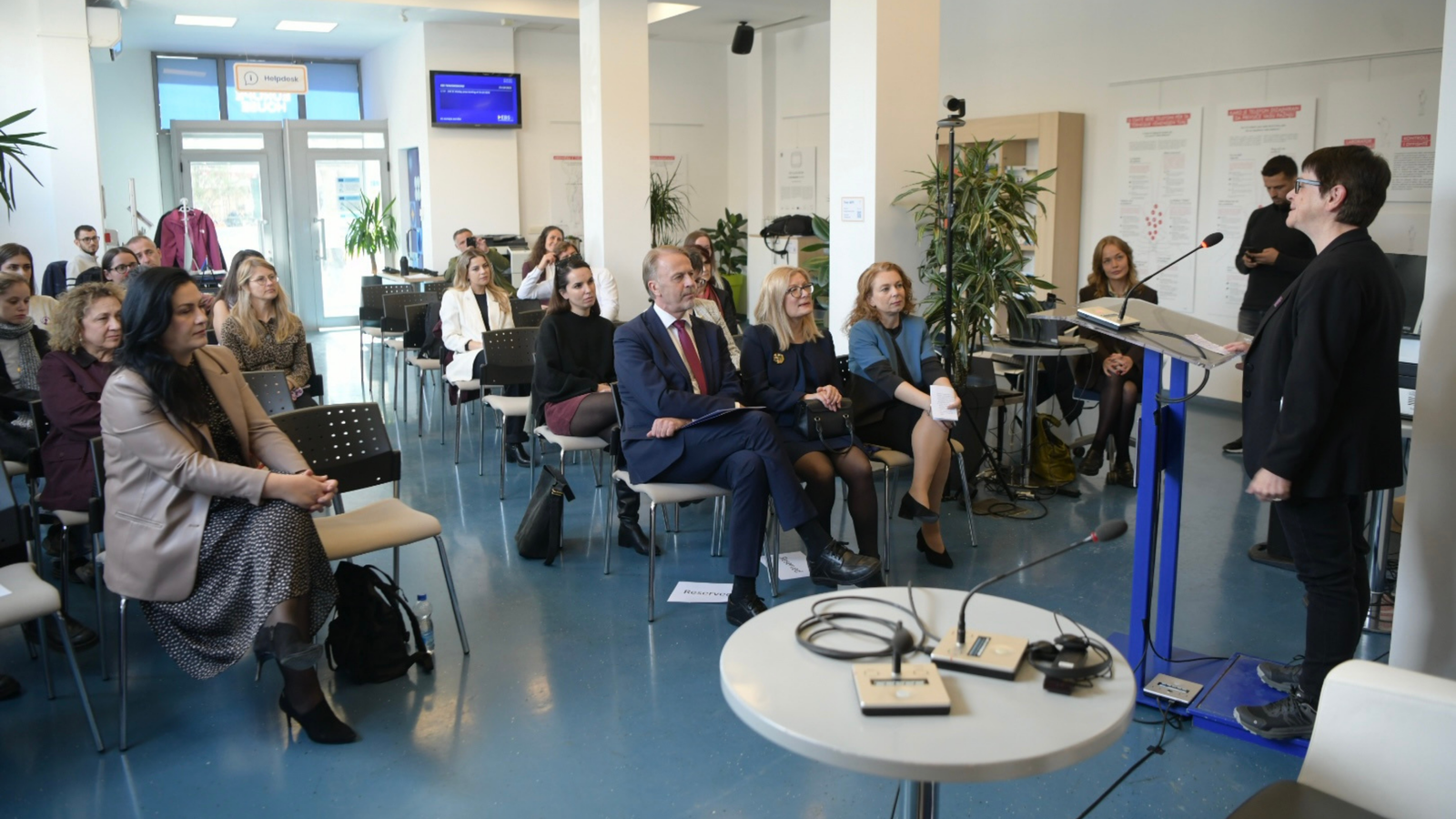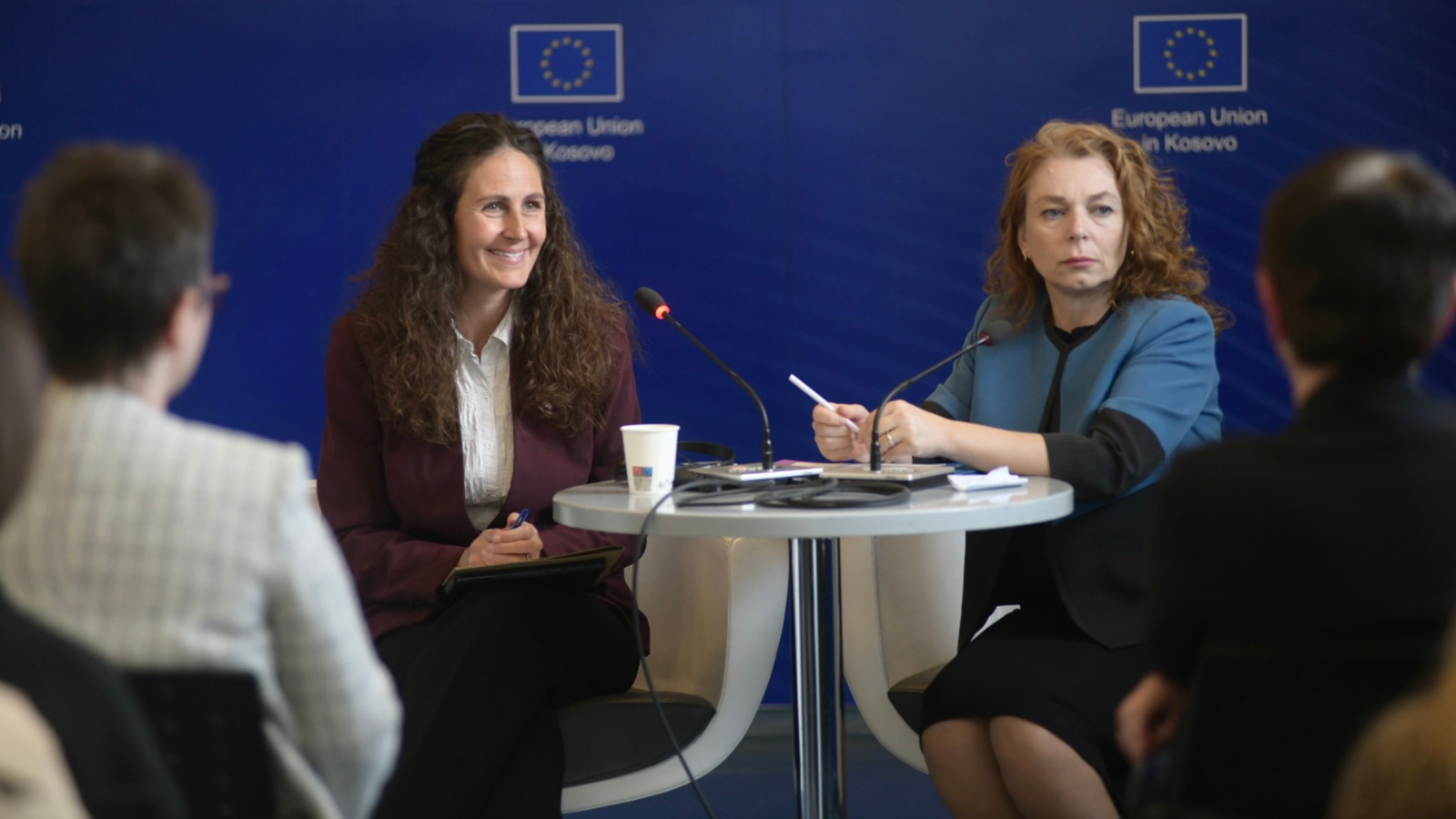On 31 October, the European Union in Kosovo, together with the Kosovo Women’s Network (KWN), marked the 25th Anniversary of United Nations Security Council Resolution 1325 on Women, Peace and Security (WPS) at the Europe House in Pristina and launched an EU-funded and KWN-prepared report entitled “Peace and Security in Kosovo: A Gender Analysis”.
“The aim of the gender analysis of peace and security in Kosovo is to inform present and future EU programming that will further and better support the implementation of the Women, Peace, and Security Agenda in Kosovo, in cooperation with institutions, civil society, women’s rights organisations and international partners,” said Aivo Orav, the EU Ambassador in Kosovo.
In marking this Anniversary, Orav was joined by Igballe Rogova, Executive Director of KWN, a multiethnic network of 102 diverse women’s rights organisations. “Without the inclusion of women, there is no lasting peace. Without women, there is no justice, and the absence of justice undermines the achievement of sustained peace,” Rogova emphasised.

Presenting the new Gender Analysis’ key findings and recommendations, the KWN Deputy Director and Lead Researcher Nicole Farnsworth highlighted that Kosovo has committed to the WPS Agenda but that several laws and policies require amending and adopting to ensure its implementation, particularly related to women’s participation and protection, including electoral laws, the law on the status and rights of war victims and the Law on the Kosovo Security Force.
“The new Kosovo Program on Gender Equality should attend to several unimplemented aspects of the WPS Agenda so it can serve as Kosovo’s National Action Plan on WPS,” said Farnsworth.

The report further notes that the root causes of past, present and potential future tensions include segregated education and media that reinforce gender norms underpinning violence; insufficient inclusive and gender-responsive interethnic communication and interactions; economic instability and inadequate transitional justice.
The report recommends strengthening gender-responsive transitional justice, improving access to social and health services and implementing gender-responsive education, economic and environmental programs that address gendered structural inequalities and bring diverse women and men together to address issues of shared interest.
In addition, the report highlights the need to better engage diverse women, men and women’s rights organisations in consultations and in transitional justice, security, and peace processes, ensuring inclusive participation, leadership and gender-responsive decision-making.
The full report is available here in English, Albanian, and Serbian.







